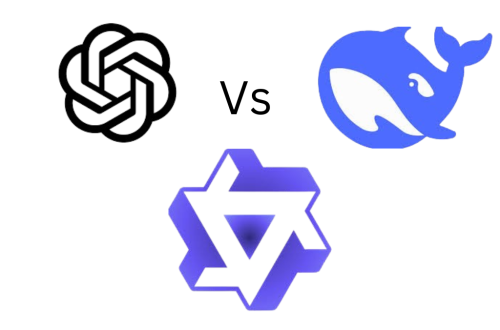
Ethics and Governance in the Metaverse: Who Controls the Virtual World
There are concerns that the metaverse is more likely to serve the plutocratic ends of technology corporations rather than being used for public goods. Therefore its future in ethical, political, and metaphysical raises some serious regulation issues like its Virtual Realist Governance and Survillant Physics.
Mark Zuckerberg describes the metaverse as being inside the internet rather than just looking at it through the screen, explaining the metaverse as a broad 3D immersive version of the internet combining mixed and virtual reality technologies.
The metaverse generates the data including a person’s facial expression, gestures, and reactions to create an avatar. Yet this information is a sensitive personal data referred to as a classified one and a breach into this information leads to serious consequences. The situation appears frightening when you are heading to a virtual world and you don’t know who else has access to the data of your VR. Therefore immersion in virtual reality raises questions about the moral and ethical use of metaverse.

Who Owns and Controls the Metaverse Data?
With Facebook predicting the use of metaverse in our work and social interaction it’s important to brace up to deal with the harmful behaviors that will emerge sharper than ever. Virtual groping is one of these acts making researchers and designers of virtual worlds set their sights to focus on using proactive measures to deal with and discourage these acts while encouraging positive behaviors.
Multiplayer digital gaming has dealt with these behaviors and offers ideas to understand the toxic activities and prevent them from thriving in VR using proactive means.
The laws of the real world however are ineffective in sorting out the wrongs in the fast-paced digital environments. The major issue is to identify the suspects and determine jurisdiction knowing that the globalized online communities lack essential laws to confront the culprit.
Ethical Challenges of Metaverse
Ethical considerations are essential for companies to adopt the right data procedure that prioritizes user privacy and security and guides the behavior of entities that operate in the metaverse. Take an example of the fundamental issue affecting our society. Like the concentration of power in the hands of a few.
This advantage supports these individuals or groups in the economy, politics, and online world making them the dominant players who have authority in our lives. Apart from offline issues, they also impact our lives using online platforms causing censorship, propaganda, data breaching, unfair algorithms, and other problems.
Thats why it is crucial to strike a balance between innovation and safeguarding the data without any cost to user privacy.
Privacy
The collaboration between tech companies, user advocacy groups, and policymakers is a decisive factor in creating comprehensive data governance frameworks. The frameworks are expected to cover factors like data collection, usage, user rights, sharing, and storage. That’s why, just like in a real-world metaverse user education is crucial to understand the pros and cons of metaverse to make an informed decision.
Cybersecurity
Ensuring data protection from cybercriminals is the only way to maintain a user’s trust in the metaverse. The blend of virtual and physical worlds makes cybersecurity a paramount that needs a constant balance of data protection with a seamless user experience. The user may not want an intrusive pop-up that’s why there should be a user-friendly design to convey data collection practices while obtaining consent.
Digital Right to Own and Control Data
Determining ownership and control of data within the metaverse can be tricky especially when the avatars interact globally. That’s why it is crucial to determine the ownership rights to provide the user with the ability to manage and delete data.
The integration of metaverse with physical data made it clear that existing data protection laws are not adequate to adapt to the changes in virtual environments and there’s a need for new legislation. The unique aspects of the metaverse require a balance between regulation while allowing the flexibility of creativity and upholding user rights. These conditions make lawmaking an entirely difficult process.

Governance Challenges of Metaverse
Extended reality XR metaverse refers to the digital universe that not only combines but also keeps switching between augmented reality, virtual reality, and mixed reality. The 2020 and 2023 findings reveal the governance of XR is being governed by civil society, industrial stakeholders, government, and technological stack supporters.
According to that report, the XR metaverse scopes around major issues of privacy, safety, inclusion, competition, commercialism, and equity. The governance solutions to these issues include reliable laws and regulations and a more anticipatory set of approaches that cover largely scoped practices of self-governance, education, and affordances of XR.
These governance challenges can be addressed through industrial standards uniform product design and maintaining the protocols of XR hardware. The World Wide Web Consortium’s XR Accessibility Use Requirments established and categorized the needs of people with disabilities as they use XR.
Is it Helpful to Apply Real World Models to the Metaverse?
This debate suggests applying real-world policies to where they might be required. Moderating online content encompasses several issues and the executives have to find out ways to apply national rules to borderless online spaces. There are examples of companies applying real-world governance models to the decision-making process while developing regulations for content moderation.
However, not all legislators are satisfied with this process, and the question is likely to persist whether or not the metaverse can be governed.
Conclusion:
Although the metaverse introduces a new dimension of data governance challenges. By carefully balancing user privacy, data protection, and user experience, we can maintain exploring creativity without breaching hazards. Since metaverse transcends the international borders the cooperation between nations ensures the international governance of data and privacy standards and is important to create a regulated environment.





